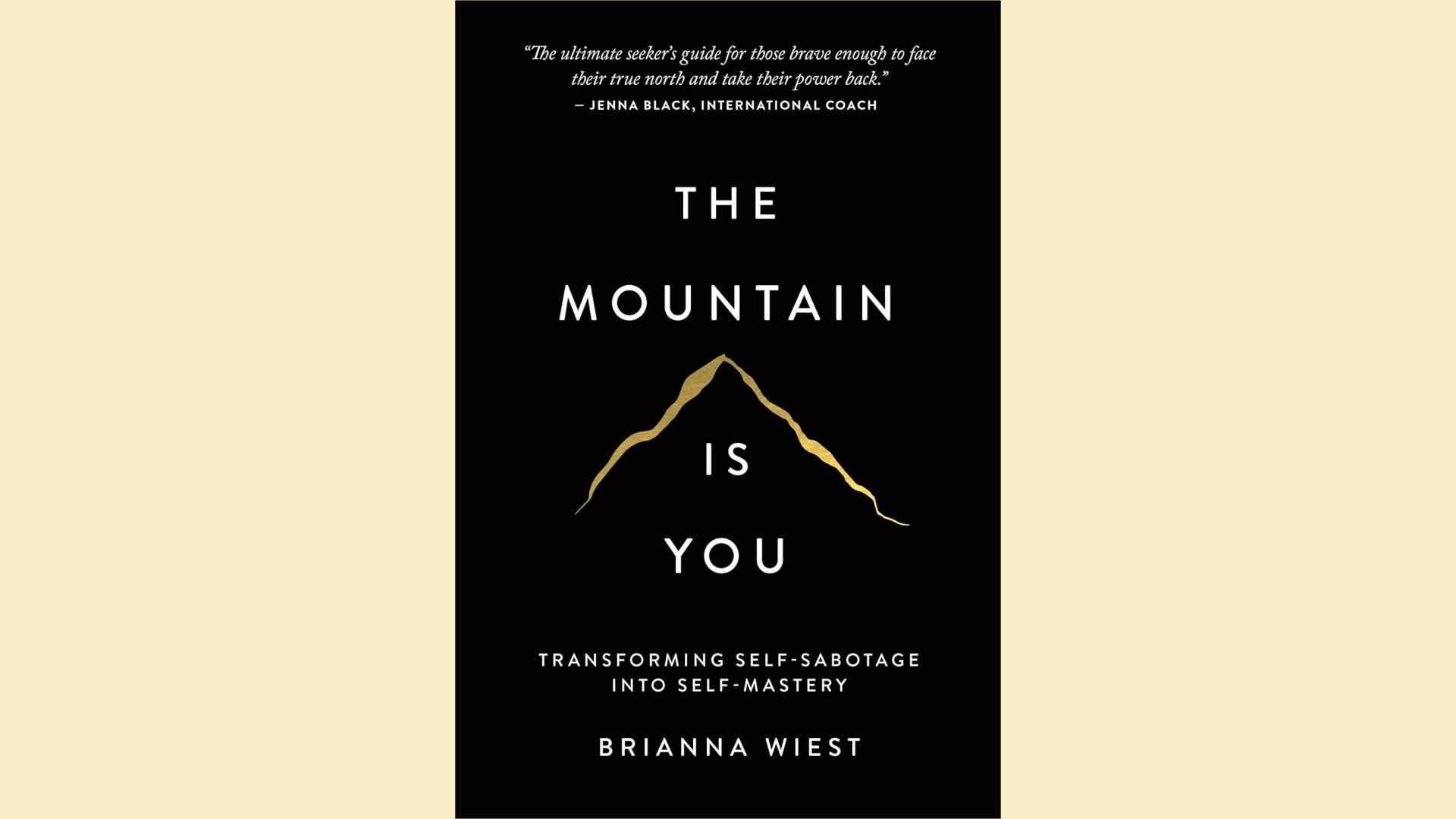Summary: The Mountain Is You by Brianna Wiest

In her transformative book, The Mountain Is You, Brianna Wiest addresses the profound impact of self-sabotage and provides a roadmap for overcoming the internal barriers that hinder our growth. By understanding and confronting these self-imposed obstacles, we can embark on a journey of personal transformation and achieve our highest potential.
Understanding Self-Sabotage
Self-sabotage is a pervasive issue that affects many individuals. Wiest explains that self-sabotage stems from deep-seated fears and insecurities. These behaviors manifest in various ways, such as procrastination, negative self-talk, and avoidance of challenges. We can dismantle these patterns and create a foundation for personal growth by recognizing them.
“Self-sabotage is when we say we want something and then go about making sure it doesn’t happen.” - Brianna Wiest
Example: Imagine you dream of starting your own business. However, every time you progress, you suddenly find reasons to delay launching it, convincing yourself that you’re not ready yet or need more preparation. This procrastination is self-sabotage driven by fear of failure or success.
Identifying Your Mountains
The mountain metaphor represents the personal challenges and fears each faces. Wiest encourages readers to introspect and identify their unique “mountains.” This process involves honest self-reflection and a willingness to confront uncomfortable truths about oneself.
Example: If you notice a recurring pattern of unfulfilling relationships, your “mountain” might be a fear of intimacy or abandonment. Identifying this pattern allows you to address the underlying issues and work towards healthier relationships.
Harnessing Emotional Intelligence
Emotional intelligence plays a crucial role in overcoming self-sabotage. Wiest advocates mindfulness, journaling, and self-compassion to help us better understand our emotions. These practices enable us to process and heal from past traumas and move forward with clarity and purpose.
“Healing is not about changing who you are; it’s about changing your relationship to who you are.” - Brianna Wiest
Example: Practicing mindfulness can help you become more aware of your emotional triggers. If you find yourself getting anxious before essential meetings, mindfulness can help you recognize this anxiety and address it constructively rather than allowing it to sabotage your performance.
Embracing Growth and Transformation
Growth often requires us to step out of our comfort zones and endure periods of discomfort. Wiest outlines the stages of transformation, highlighting the importance of resilience and persistence. We can overcome our internal mountains and achieve lasting personal development by embracing the change process.
Example: If you’re used to staying in your comfort zone at work, taking on a challenging new project can be a step towards growth. Initially, you might feel uncomfortable and doubt your abilities, but pushing through this discomfort can lead to significant professional development.
Practical Strategies for Success
Wiest provides numerous practical strategies for overcoming self-sabotage. These include setting realistic goals, developing a positive mindset, and creating a supportive environment. By implementing these strategies, readers can break free from self-destructive habits and pave the way for success.
“The mountain you’ve been assigned is your opportunity to discover who you are capable of becoming.” - Brianna Wiest
Example: Setting a realistic goal might involve breaking down a large project into smaller, manageable tasks. If you aim to write a book, start by committing to writing 500 words a day. This approach makes the task less daunting and helps you build momentum over time.
Practical Tool: Step-by-Step Guide to Overcoming Self-Sabotage
- Identify Self-Sabotaging Behaviors
• Reflect on areas where you consistently fall short.
• Example: Notice if you procrastinate on important tasks, such as delaying your work on a crucial presentation until the last minute. - Understand the Root Causes
• Explore the fears and insecurities driving these behaviors.
• Example: Journal about past experiences that may contribute to your fear of failure, such as a previous project that didn’t go well and made you doubt your abilities. - Develop Emotional Intelligence
• Practice mindfulness to stay present and aware of your emotions.
• Example: Meditate daily to enhance your emotional awareness, helping you recognize when you’re feeling stressed and respond healthily. - Set Realistic Goals
• Break down significant objectives into manageable steps.
• Example: Create a daily to-do list with achievable tasks, such as writing one section of a report each day instead of attempting to complete the entire report in one sitting. - Build a Supportive Environment
• Surround yourself with positive influences and seek guidance when needed.
• Example: Join a support group or find a mentor who inspires you and can provide advice and encouragement when facing challenges. - Practice Self-Compassion
• Treat yourself with kindness and understanding during setbacks.
• Example: Replace negative self-talk with affirmations, such as telling yourself, “I am capable and resilient,” instead of focusing on past mistakes. - Stay Persistent and Resilient
• Embrace challenges as opportunities for growth.
• Example: When facing a setback, reassess your approach and try again. If your initial attempt at a new exercise routine fails, adjust the plan to make it more realistic and try again.
Author Biography
Brianna Wiest is a writer, poet, and author known for her thought-provoking works on emotional intelligence, self-improvement, and personal development. With a background in journalism and a passion for psychology, Wiest has authored several books that inspire readers to live with intention and purpose. Her writing combines practical advice with deep insights, making complex psychological concepts accessible and actionable.
Discover the transformative insights of Brianna Wiest’s book “The Mountain Is You,” which explores self-sabotage, emotional intelligence, and personal growth. Learn practical strategies to overcome your internal obstacles and achieve lasting success.
